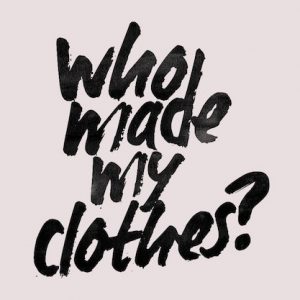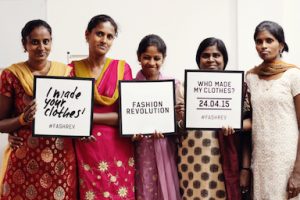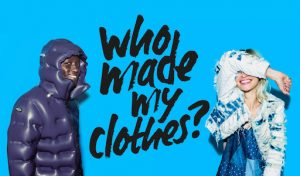
 In April 2013 ‘sweat shops’ manufacturing fashion labels in risky condition ‘collapsed under malpractises’ when Rana Plaza factory in Dhaka, Bangladesh collapsed and took the lives of 1138 people Following the tragic incident, a social enterprise – Fashion Revolution (and its annual week dedicated to ethics in fashion) was founded to fight for greater transparency in the industry, and to ensure safer working conditions for garment workers. Now in its fifth year, Fashion Revolution Week has come around once again, and with it the latest Fashion Transparency Index.
In April 2013 ‘sweat shops’ manufacturing fashion labels in risky condition ‘collapsed under malpractises’ when Rana Plaza factory in Dhaka, Bangladesh collapsed and took the lives of 1138 people Following the tragic incident, a social enterprise – Fashion Revolution (and its annual week dedicated to ethics in fashion) was founded to fight for greater transparency in the industry, and to ensure safer working conditions for garment workers. Now in its fifth year, Fashion Revolution Week has come around once again, and with it the latest Fashion Transparency Index.

 Fashion Revolution continues to ask #whomademyclothes – and this week, they present a new film questioning just that. Drawing attention to the place garment workers occupy in the supply chain, the film puts those working in the cotton-picking and weaving industries, dying clothing, and sewing the final garments at front and centre. Here is the film: https://youtu.be/XTnFfa0qHIM
Fashion Revolution continues to ask #whomademyclothes – and this week, they present a new film questioning just that. Drawing attention to the place garment workers occupy in the supply chain, the film puts those working in the cotton-picking and weaving industries, dying clothing, and sewing the final garments at front and centre. Here is the film: https://youtu.be/XTnFfa0qHIM
Up 52 cooperating companies this time around, the list evaluates 150 of the biggest fashion brands (including Calvin Klein, Gucci, and Louis Vuitton) across five key areas: policy and commitments, governance, traceability, ‘know, show & fix’ and spotlight issues. These sectors review how much information brands disclose about their suppliers, supply chain policies and practices, and social and environmental impact to give a score. this time not only are there more brands in total, but on average the group performed better, with 65 brands exceeding the benchmark score in comparison to last year’s 43. The North Face took the top spot for most improved, having increased its total score by 22 per cent, particularly in governance which looks into the effort made by the head of the company. Elsewhere, Levi’s, ASOS and Hugo Boss also made significant improvements showing tangible results from the report.
With no brands scoring more than 60 per cent, there is still a lot of progress that needs to be made. There is also still a lack of transparency when it comes to disclosing information around the treatment of garment workers, particularly women. With some brands also refusing to disclose any information whatsoever, it’s difficult to get an idea of the whole picture.
